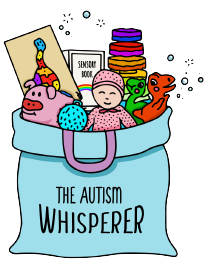
The world can often appear confusing and chaotic for autistic children, causing them high levels of anxiety in situations most of us take in our stride. Whilst every child develops differently, when a child does not appear to be following the usual path of developmental stages, it can raise concerns amongst family, carers and educators and we wonder what can be done to support them to achieve the age expected goals. From both research and experience, we know that early intervention improves outcomes, often dramatically. Early intervention can improve communication, social and emotional skills and improve overall educational goals and outcomes.
Does your child avoid interaction or engage only on their own terms?
Do they struggle to convey their wants and needs? Or appear to ignore you or respond differently to your communication with them?
Do they find great comfort in predictability and routine, for example, lining things up, insisting on the same route to school?
Do they have unexpected, extreme reactions to sensory stimuli such as noise, sights, smells around them?
Changes in routine and transitions can completely overwhelm an autistic child and autism can impact a child’s ability to communicate and interpret meaning.
Many children with autism experience some form of sensory sensitivity and this can lead to them having intense positive or negative reactions to sensory stimuli.
One of the many things that make autistic children unique, is that they have highly-focused strengths and interests. These can open up a wealth of opportunity to start them engaging with learning.
.
